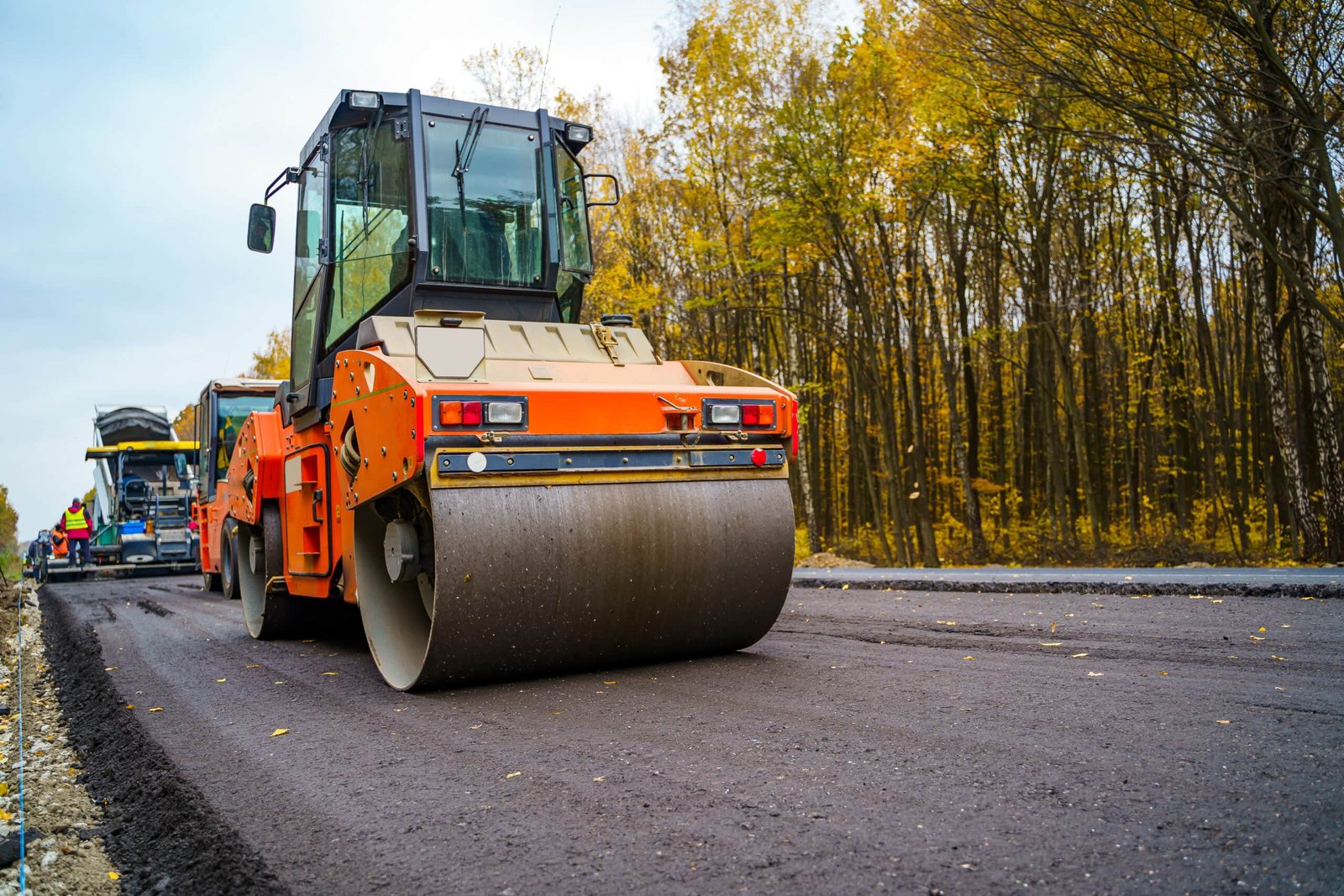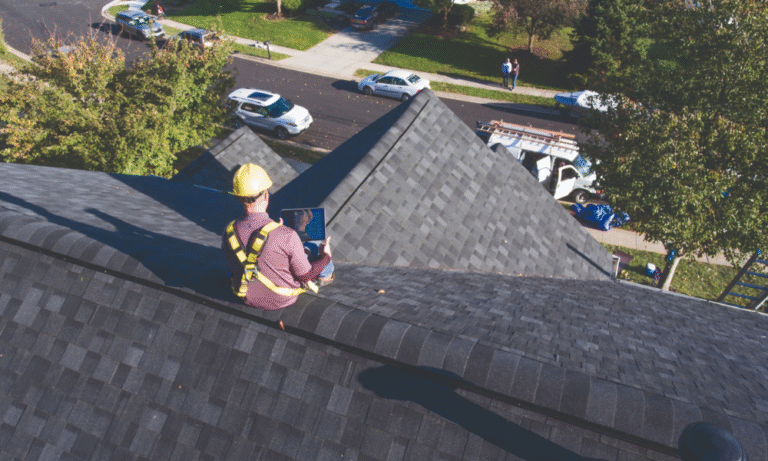Estimated reading time: 5 minutes
Last updated on August 20th, 2025 at 11:15 am
A well-paved driveway can completely transform the look of your home, adding both street appeal and functionality. Among the different driveway options, asphalt is one of the most popular choices for Australian homeowners. It’s durable, versatile, and provides a clean, smooth surface that can last for decades when maintained properly.
But before you book a contractor, it’s important to understand what asphalt paving costs, the factors that influence pricing, and what you should budget for in terms of long-term maintenance. In this guide, we’ll take a deep dive into everything you need to know about the cost of asphalt paving.
What Is Asphalt Paving?
Asphalt paving involves laying down a mixture of aggregates (stone, sand, and gravel) bound together by bitumen, a petroleum-based product. This material is heated, poured, and then compacted to create a strong, flexible, and smooth surface.
It’s widely used for residential driveways, car parks, footpaths, and private roads because it’s cost-effective and can withstand Australia’s climate — from scorching summers to heavy rainfall.
Average Cost of Asphalt Paving in Australia
The cost of asphalt paving can vary widely depending on your location and project requirements. On average, you can expect to pay between:
- $70 – $150 per square metre for standard residential driveways
- $1,200 – $2,700 for a single-car driveway (about 18 m²)
- $3,000 – $6,000 or more for larger or double-car driveways
In the US, the average ranges from $7 – $15 per square foot, which is fairly similar when converted.
While these figures provide a general idea, the actual cost of your project will depend on a range of factors, which we’ll explore next.
Key Factors That Influence Asphalt Paving Costs
Several elements affect how much you’ll pay for asphalt paving. Understanding them will help you plan your budget more effectively.
1. Size and Thickness of the Driveway
The bigger the area, the higher the cost. But thickness also matters. Residential driveways typically require 50–75mm of asphalt. Heavier-use surfaces, such as those designed for trucks or high traffic, need thicker layers and therefore cost more.
2. Base Preparation
One of the most overlooked cost factors is preparing the ground. A stable base is essential for long-lasting asphalt. If your site requires excavation, grading, or gravel to create a solid foundation, the price will increase. Homes with poor soil conditions or sloped land may require extensive base work.
3. Material Quality
Not all asphalt is created equal. Premium mixes designed to withstand high temperatures, heavy use, or frequent rainfall tend to cost more but offer better durability. Using recycled asphalt is often a cheaper option but may not last as long.
4. Labour and Location
Labour costs can vary depending on where you live. In metropolitan areas, you’ll often pay more due to higher demand, overhead costs, and transport expenses. In regional or rural areas, rates can be lower, but availability of skilled contractors may be limited.
5. Additional Features and Finishes
Extras such as decorative borders, edging, drainage systems, or coloured asphalt will increase the cost. While they add appeal and functionality, they should be factored into your budget early.
Long-Term Costs: Maintenance and Repairs
While asphalt is relatively low-maintenance compared to alternatives like gravel, it does require care to extend its lifespan. Most asphalt driveways last 15–20 years, but only if properly maintained.
Typical maintenance tasks include:
- Sealcoating every 3–5 years to protect the surface from UV rays, oil, and water damage.
- Crack filling as soon as splits appear, preventing water from seeping in and weakening the foundation.
- Patching or resurfacing when larger areas start to break down. Resurfacing (adding a new top layer) is often more affordable than a complete replacement.
Factoring in these long-term costs will give you a realistic idea of what asphalt paving truly costs over its lifetime.
Asphalt vs. Other Driveway Options
If you’re still weighing your options, here’s how asphalt compares to other common driveway materials:
- Concrete – More expensive upfront but slightly more durable. Cracks can be harder and costlier to repair.
- Gravel – Cheap to install but requires frequent regrading, can shift easily, and doesn’t offer the same polished look.
- Pavers – Highly customisable and visually appealing, but also one of the priciest options and labour-intensive to install.
Overall, asphalt offers a good balance between cost, durability, and appearance, making it one of the best value-for-money choices.
Tips to Reduce Asphalt Paving Costs
Paving a driveway is a major investment, but there are ways to keep expenses in check:
- Get multiple quotes – Always compare prices from at least three reputable contractors.
- Schedule in off-peak times – Some contractors offer better rates during cooler months or when demand is lower.
- Do basic preparation yourself – Clearing vegetation or debris before the crew arrives can save you labour costs.
- Stick to standard finishes – While decorative extras are nice, they quickly add to the final bill.
- Choose the right thickness – Don’t overpay for a heavy-duty layer if your driveway will only be used for standard vehicles.
Signs It’s Time to Replace or Resurface Asphalt
If you already have an asphalt driveway, you may be wondering whether you need a fresh install or just resurfacing. Signs it’s time to act include:
- Large potholes or crumbling sections
- Frequent water pooling
- Deep cracks spreading across the surface
- Faded colour and rough texture
- Uneven or sinking areas
Resurfacing may be a cost-effective option if the base is still solid, but in severe cases, a complete replacement is often the smarter long-term choice.
Final Thoughts
Asphalt paving is a reliable, cost-effective choice for homeowners who want a durable and attractive driveway. While initial costs can range widely depending on factors such as site preparation, materials, and labour, asphalt generally provides excellent long-term value.
By budgeting for both installation and future maintenance, you’ll enjoy a smooth, functional, and long-lasting driveway that enhances both the look and value of your home.



